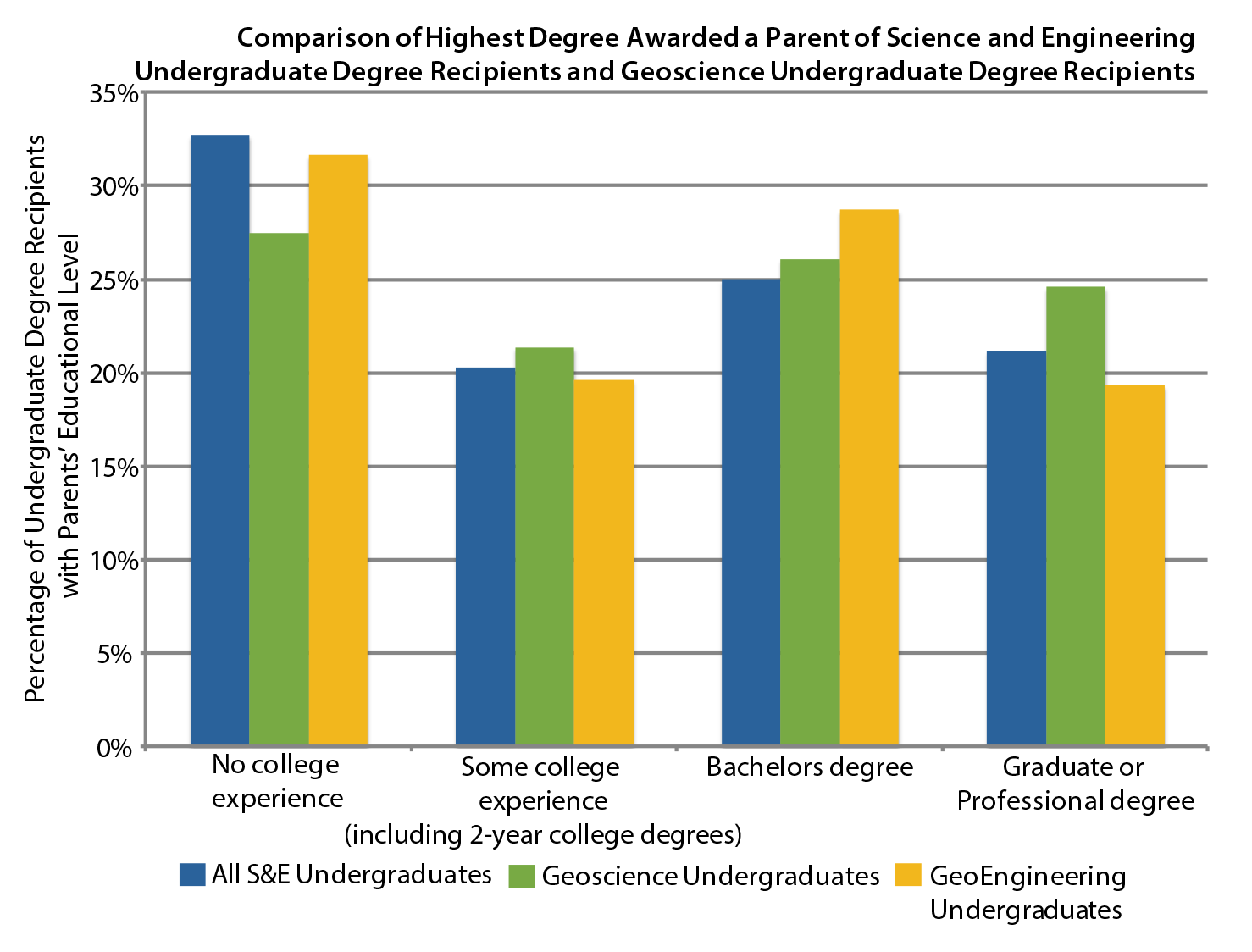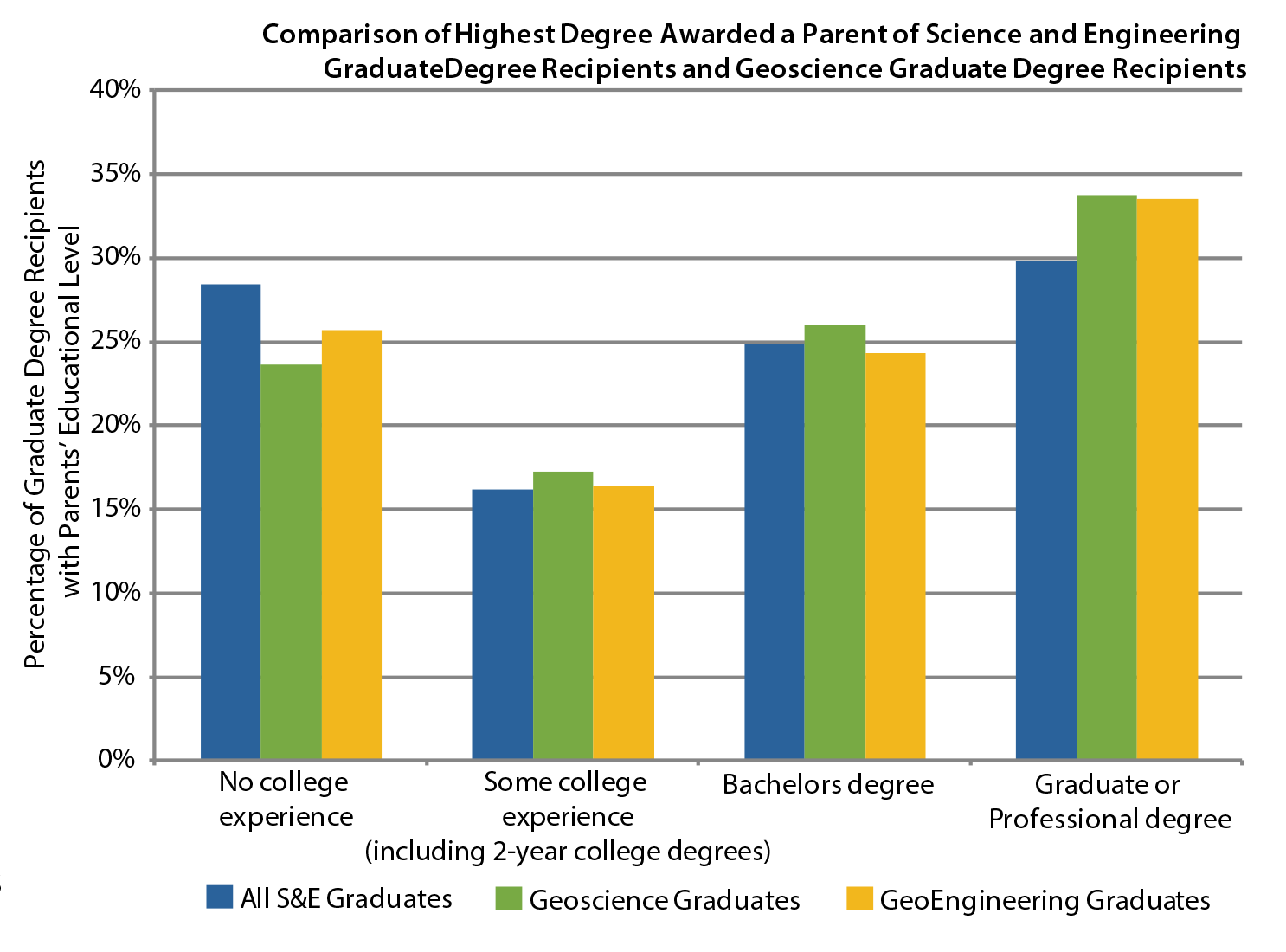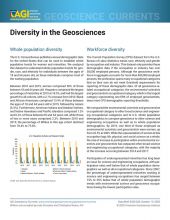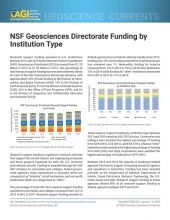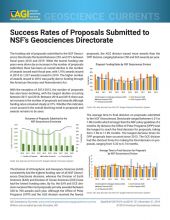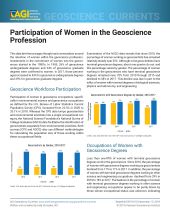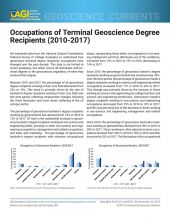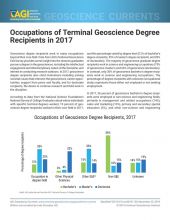Concerns have been raised that geoscience programs tend to attract students from middle and upper class families, possibly due to either parental familiarity with geoscience from prior college experience or because of extra costs for co-curricular activities such as field camp. In an attempt to begin investigating the socioeconomic status of geoscience students, discussions within AGI's Workforce Program have focused around using parent’s highest education level as a proxy for inferring a student’s socioeconomic status.
Since the parental education level of scientists and engineers tends to be greater than the total population, we examined the level of education for parents of geoscience graduates as compared to that of the parents of other scientists and engineers. The data for these figures come from NSF's Survey of College Graduates. Geo-engineering fields include geophysical and geological engineering, petroleum engineering, mining and mineral engineering, and environmental engineering.
While any differences appear minimal, there is a statistically significant difference between the parental education level for undergraduate degree recipients between the major fields in science and engineering (computer/math science, biology/agriculture/environmental science, physical and related sciences, social and related sciences, and engineering) and geoscience and geo-engineering fi]elds (Kruskall-Wallis test statistic (6 df ): 28.538, p<0.001). Specifically, parent’s education level among those with a geoscience degree is significantly higher than those with computer/mathematical science degrees (p<0.001), physical and related science degrees (p<0.05), social and related science degrees (p<0.001), and engineering degrees (p<0.001). However, there is no significant difference in parent’s highest education level among scientists and engineers with a graduate degree (Kruskall-Wallis test statistic (6 df ): 11.263, p>0.05).


